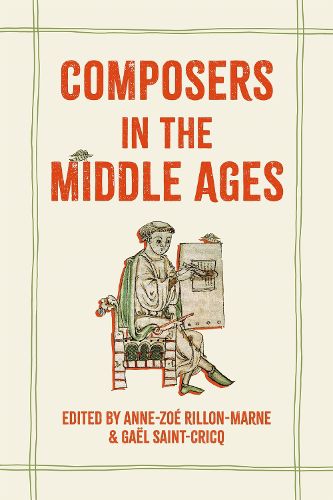Readings Newsletter
Become a Readings Member to make your shopping experience even easier.
Sign in or sign up for free!
You’re not far away from qualifying for FREE standard shipping within Australia
You’ve qualified for FREE standard shipping within Australia
The cart is loading…






A reflection on the idea of the "composer" in the medieval period, including a study of the individuals and groups active in the creation of medieval music.
The modern concept of the individual composer is central to accounts of Western music, and continues to represent a critical field of research in musicology. However, this approach cannot be straightforwardly transposed to the Middle Ages, as it does not reflect the complex creative realities of medieval composition, and conflicts with the evidence from extant sources and documentation.
This collection, the first full-length study of the subject, questions and revises the concept of the composer for the medieval period through five thematic parts: 'Historiographical Critique', 'Ascriptions, Attributions, Signatures', 'Medieval Constructions of Authority and of the Authorial Persona', 'The Composing Workshop', and 'Composers as Communities'. Spanning a period from the seventh century to the early Renaissance, and taking in different cultural and geographical areas of Western Europe, the essays examine a range of repertoires and fields - plainchant, Latin devotional song, medieval motet, trouvere song, Ars nova, drama, and illuminated Gothic manuscripts - in diverse contexts, from clerical communities, to princely courts and lay workshops. Overall, the new perspectives here shed fresh light on the musical practices and repertoires of the Middle Ages.
Chapters 6 and 10 are available as Open Access under the Creative Commons license CC-BY-NC-ND.
$9.00 standard shipping within Australia
FREE standard shipping within Australia for orders over $100.00
Express & International shipping calculated at checkout
A reflection on the idea of the "composer" in the medieval period, including a study of the individuals and groups active in the creation of medieval music.
The modern concept of the individual composer is central to accounts of Western music, and continues to represent a critical field of research in musicology. However, this approach cannot be straightforwardly transposed to the Middle Ages, as it does not reflect the complex creative realities of medieval composition, and conflicts with the evidence from extant sources and documentation.
This collection, the first full-length study of the subject, questions and revises the concept of the composer for the medieval period through five thematic parts: 'Historiographical Critique', 'Ascriptions, Attributions, Signatures', 'Medieval Constructions of Authority and of the Authorial Persona', 'The Composing Workshop', and 'Composers as Communities'. Spanning a period from the seventh century to the early Renaissance, and taking in different cultural and geographical areas of Western Europe, the essays examine a range of repertoires and fields - plainchant, Latin devotional song, medieval motet, trouvere song, Ars nova, drama, and illuminated Gothic manuscripts - in diverse contexts, from clerical communities, to princely courts and lay workshops. Overall, the new perspectives here shed fresh light on the musical practices and repertoires of the Middle Ages.
Chapters 6 and 10 are available as Open Access under the Creative Commons license CC-BY-NC-ND.